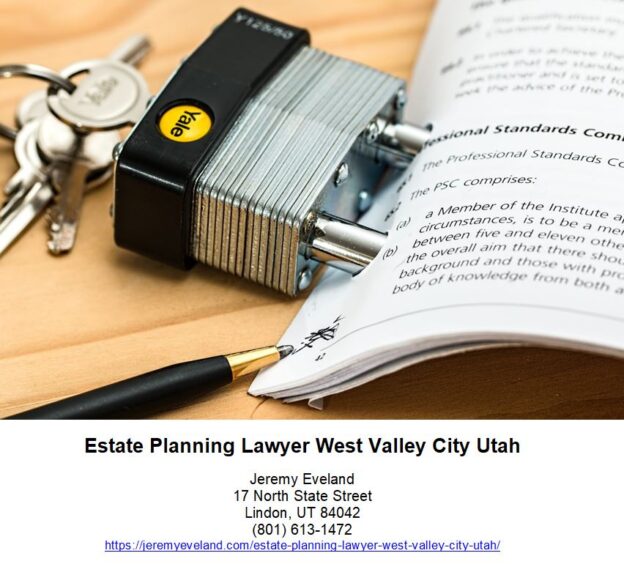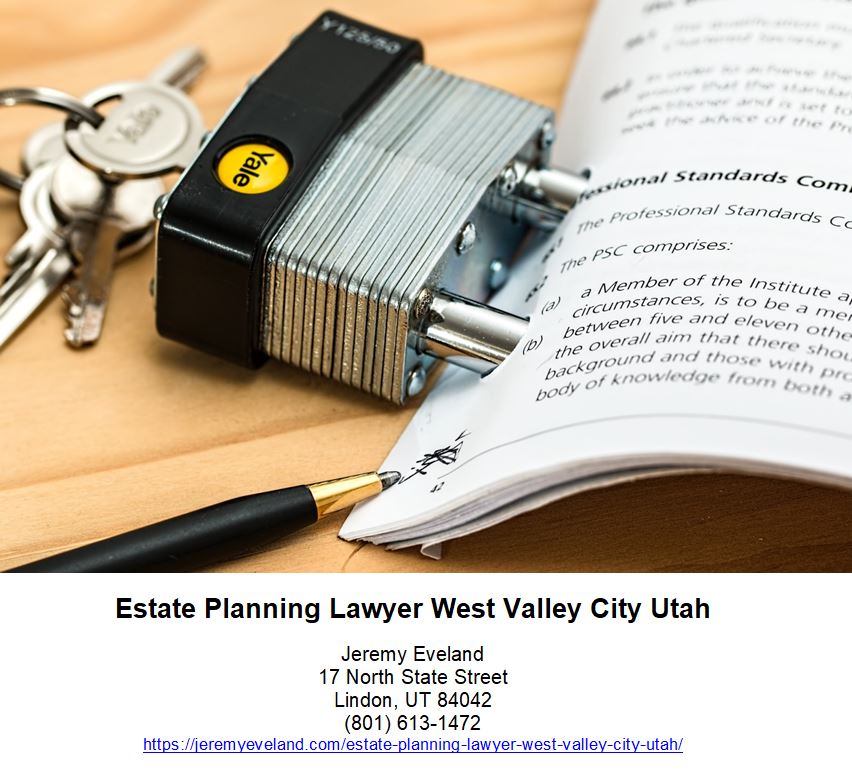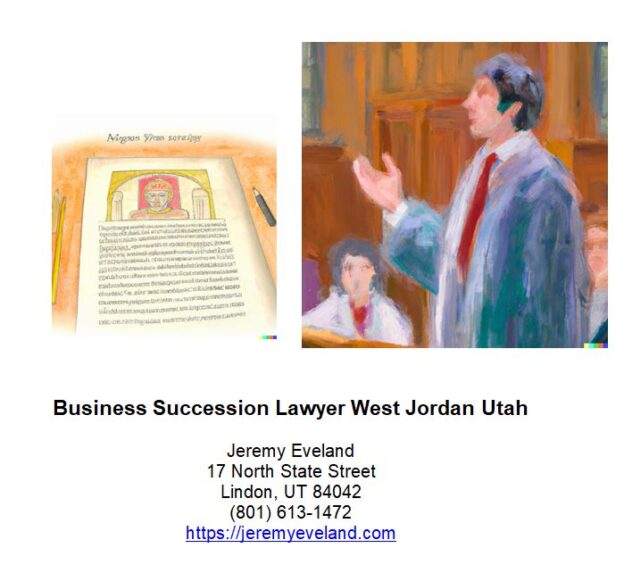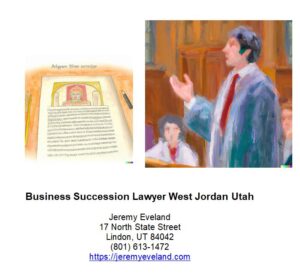Are you considering a divorce in West Valley City, Utah? We understand that this is a difficult and emotional time, and you may have numerous legal concerns and questions. Our goal is to provide you with the reassurance and guidance you need. Our experienced divorce lawyer is here to support you through every step of the process. From child custody to property division, we will address common legal concerns directly, ensuring you have the information you need to make informed decisions. Our focus is not just on providing legal advice, but also on creating an emotional connection with our clients. We want you to feel heard, understood, and supported. Our content is optimized for search engines, so you can easily find the information you need. So, if you’re ready to take the next step and seek assistance promptly, give us a call. Let us help you navigate through this challenging time and find a resolution that works best for you and your family.
Why Hire a Divorce Lawyer?
Divorce is a complex and emotionally challenging process that can have a significant impact on your life. Navigating through the legal proceedings and ensuring that your rights and interests are protected can be overwhelming. This is where a divorce lawyer comes in. Hiring a divorce lawyer can provide you with the necessary expertise, guidance, and support to navigate through the complexities of the divorce process and achieve better outcomes.
Understanding the Complexity of Divorce Proceedings
Divorce proceedings involve various legal formalities and require a thorough understanding of family law. A divorce lawyer possesses the knowledge and experience to guide you through the entire process, from filing the divorce petition to the issuance of the final divorce decree. They can help you understand the legal requirements, deadlines, and options available to you. With their expertise, you can ensure that all the necessary paperwork is completed accurately and submitted on time.
Working with a Legal Expert for Better Results
Divorce lawyers have extensive experience in handling divorce cases and are well-equipped to deal with complex legal issues that may arise during the process. They can provide valuable legal advice tailored to your specific situation, helping you make informed decisions. By working closely with a divorce lawyer, you can develop a comprehensive strategy that aligns with your needs and objectives, increasing the likelihood of achieving a favorable outcome.
Navigating the Legal System Efficiently
The legal system can be overwhelming, especially if you are not familiar with its intricacies. A divorce lawyer is well-versed in the legal procedures and requirements of the specific jurisdiction in which they practice. They can guide you through the process, ensuring that you meet all the necessary deadlines, attend court hearings, and properly present your case. By navigating the legal system efficiently, a divorce lawyer can save you time, reduce stress, and minimize the chances of mistakes that could negatively impact your case.
The Role of a Divorce Lawyer
A divorce lawyer plays a critical role in representing your interests and ensuring a fair outcome. Here are some key responsibilities of a divorce lawyer:
Providing Legal Advice and Guidance
A divorce lawyer will provide you with expert legal advice throughout the divorce process. They will explain your rights and obligations, helping you understand the implications of various decisions. This guidance will enable you to make informed choices that will maximize your chances of achieving a favorable outcome.
Assisting with Divorce Paperwork
Divorce involves a substantial amount of paperwork, including the initial petition, financial disclosures, and support agreements. A divorce lawyer will assist you in preparing and submitting all the necessary documentation accurately and timely. This ensures that your case complies with the legal requirements and reduces the chance of delays or dismissals.
Negotiating and Mediating with the Other Party
Many divorce cases can be resolved through negotiation or mediation, rather than going to court. A divorce lawyer will represent your interests during negotiations with the other party, working towards a mutually beneficial agreement. They will advocate for your rights and strive to reach a resolution that addresses your concerns and protects your interests.
Representing Clients in Court
If your case requires litigation, a divorce lawyer will represent you in court proceedings. They will present your case, argue your position, and advocate for your rights before the judge. Having a skilled divorce lawyer by your side during court hearings ensures that your interests are vigorously defended and increases the chances of achieving a favorable outcome.
Ensuring Fair Distribution of Assets and Debts
Divorce involves the division of marital assets and debts. A divorce lawyer will help you identify and value all relevant assets, such as property, investments, and retirement accounts. They will work to ensure that these assets are divided fairly, taking into account factors such as the length of the marriage, each party’s contribution, and future financial needs.
Protecting the Rights and Interests of Children
When children are involved in a divorce, their well-being is of utmost importance. A divorce lawyer will advocate for the best interests of your children, helping establish custody and visitation arrangements that promote their physical and emotional well-being. They will also assist in determining child support and help address any other child-related issues that may arise during the divorce process.
Handling Spousal Support and Child Custody
In cases where spousal support or alimony is a consideration, a divorce lawyer can help negotiate fair and reasonable terms. They will consider factors such as the length of the marriage, the earning capacity of each spouse, and the needs of the dependent spouse. Additionally, they can provide guidance and support in matters related to child custody, ensuring that the arrangements made are in the best interests of the children.

Qualities to Look for in a Divorce Lawyer
When selecting a divorce lawyer, it is essential to find someone who possesses the right qualities. Here are some qualities to look for:
Experience and Expertise in Family Law
Divorce laws can vary from state to state, so it is crucial to hire a lawyer who specializes in family law and has extensive experience in handling divorce cases. An experienced divorce lawyer will be familiar with the legal system, understand the complexities of divorce proceedings, and have the necessary skills to navigate through it.
Good Communication Skills
Effective communication is essential in any legal case, and divorce cases are no exception. A good divorce lawyer should possess strong communication skills, both written and verbal. They should be able to listen attentively, express themselves clearly, and effectively communicate your concerns, needs, and priorities to the other party, the court, and any other relevant individuals involved in the process.
Strong Negotiation and Mediation Skills
Negotiation and mediation are crucial aspects of divorce proceedings, as they can help resolve disputes and reach agreements without the need for court intervention. A competent divorce lawyer should have strong negotiation and mediation skills to advocate for your interests and ensure that you achieve the best possible outcomes through these methods.
Client-Focused Approach
A divorce lawyer should prioritize their clients’ needs and objectives throughout the process. They should take the time to understand your unique situation, listen to your concerns, and develop a strategy that aligns with your goals. A client-focused approach ensures that your voice is heard and that your interests are vigorously represented at every stage of the divorce process.
Empathy and Sensitivity
Divorce is an emotionally charged experience, and having a lawyer who is empathetic and sensitive to your feelings can make a significant difference. A compassionate divorce lawyer will understand the emotional challenges you might face and provide you with the necessary support and guidance to navigate through them. They will strive to create a safe and supportive environment for you during this difficult time.
The Advantages of Hiring a Local Divorce Lawyer
When going through a divorce, hiring a local divorce lawyer offers distinct advantages that can positively impact the outcome of your case. Here are some benefits of working with a local divorce lawyer:
In-Depth Knowledge of Local Laws and Regulations
Divorce laws and regulations can vary from state to state and even from county to county. A local divorce lawyer will have an in-depth understanding of the specific laws and regulations applicable in your jurisdiction. They will be familiar with the local court procedures, deadlines, and requirements, ensuring that your case proceeds smoothly and complies with all legal obligations.
Familiarity with Local Courts and Judges
Local divorce lawyers have experience working with the local courts and judges. They are familiar with the judges’ tendencies, preferences, and past rulings, which can provide valuable insight into how your case might be handled. This knowledge allows your lawyer to develop an effective strategy tailored to the specific judge you will appear before, increasing the likelihood of a favorable outcome.
Convenience and Accessibility
Hiring a local divorce lawyer ensures that you have easy access to legal representation throughout the divorce process. You can schedule meetings and consultations without having to travel long distances, making it more convenient for you to stay informed and actively participate in your case. Additionally, a local lawyer can respond promptly to any urgent matters that may arise, ensuring that your interests are protected in a timely manner.
How to Choose the Right Divorce Lawyer
Choosing the right divorce lawyer is crucial for the success of your case. Here are some steps you can follow when selecting a divorce lawyer:
Seek Recommendations from Trusted Sources
Start your search for a divorce lawyer by seeking recommendations from family, friends, or colleagues who have gone through a divorce or have knowledge of reputable divorce lawyers. Their personal experiences and insights can provide valuable information and help you create a shortlist of potential lawyers to consider.
Research and Check Credentials
Once you have a list of potential divorce lawyers, conduct thorough research on each of them. Review their websites, read client reviews and testimonials, and check their credentials. Look for information regarding their experience, areas of expertise, and success rate in handling divorce cases. It is also important to verify their license to practice law and check if they have any disciplinary actions or complaints against them.
Schedule Consultations and Ask Questions
Set up consultations with the divorce lawyers on your shortlist. Most divorce lawyers offer initial consultations free of charge. During these consultations, ask relevant questions to help you assess their suitability for your case. Inquire about their experience, their approach to handling divorce cases, their communication style, and their availability. Take note of their responses and evaluate how comfortable and confident you feel with them.
Assess Compatibility and Comfort Level
Divorce cases can be emotionally challenging and can take a considerable amount of time to resolve. It is crucial to choose a divorce lawyer with whom you have a good rapport and feel comfortable working with. Assess their communication style, their ability to listen and understand your concerns, and their willingness to address your questions. A strong lawyer-client relationship built on trust and open communication will contribute to a more positive divorce experience.
Consider Fees and Payment Structure
Before making a final decision, discuss the lawyer’s fees and payment structure. Ask for an estimate of the overall costs associated with your case, including legal fees and any additional expenses. Ensure that you have a clear understanding of how they bill their services, whether it is an hourly rate or a flat fee. It is also important to discuss the availability of payment plans or options to manage the financial aspect of your case effectively.
Common Legal Concerns in Divorce Cases
Divorce cases can give rise to various legal concerns that need to be addressed. Here are some common legal concerns you may encounter during the divorce process:
Division of Marital Property and Debt
One of the significant aspects of divorce is the division of marital property and debt. The court aims to divide the assets and debts in a fair and equitable manner. However, determining what is considered fair and equitable can be complex. A divorce lawyer can help you assess your assets and debts, understand the relevant laws, and negotiate for a fair division of marital property and debt.
Child Custody and Visitation Arrangements
If you have children, child custody and visitation arrangements will be a critical concern in your divorce case. Deciding on the best arrangements for the children involves factors such as their well-being, the ability of each parent to care for them, and the parents’ relationship with the children. A divorce lawyer can help you navigate the legal standards and work towards establishing custody and visitation arrangements that are in the best interests of your children.
Child Support and Alimony
In cases involving children, child support is often a key consideration. Child support is determined based on several factors, including the income of each parent, the needs of the child, and the amount of time each parent spends with the child. Additionally, in some cases, spousal support or alimony may be awarded. A divorce lawyer can help you understand the relevant laws, calculate child support, and negotiate for a fair amount of support, whether it is for the child or the dependent spouse.
Protecting Parental Rights
During a divorce, it is crucial to protect your parental rights. You may have concerns about your ability to maintain a meaningful relationship with your children or make important decisions regarding their upbringing. A divorce lawyer can advocate for your parental rights, ensuring that they are protected and that you have a voice in important decisions affecting your children’s lives.
Reaching Agreements on Terms of Divorce
Divorce often involves negotiating and reaching agreements on various terms, such as property division, child custody, support, and visitation. These agreements can be challenging to navigate, especially if there are complex or contentious issues involved. A divorce lawyer can provide you with guidance and representation during negotiations, ensuring that your interests are protected and that you reach fair and mutually beneficial agreements.

Addressing Legal Concerns in Divorce Proceedings
When addressing legal concerns in divorce proceedings, it is essential to approach the process systematically and diligently. Here are some steps to take:
Gathering Relevant Documents and Information
Start by gathering all relevant documents and information, such as financial records, property titles, marriage certificates, and any existing agreements or court orders. These documents will provide crucial information when determining property division, child custody, support, and other legal matters. Organize and maintain copies of these documents to ensure easy access and reference throughout the divorce process.
Exploring Options for Amicable Resolutions
Consider exploring options for amicable resolutions before resorting to litigation. Mediation and settlement conferences can provide opportunities for both parties to work together and find mutually agreeable solutions. A divorce lawyer can guide you through these processes, ensuring that your rights and interests are protected while seeking resolutions that avoid the emotional and financial costs of a trial.
Understanding the Process for Dividing Assets and Debts
Property division is a key concern in many divorces. It involves identifying and valuing assets and liabilities, determining which are marital assets and debts, and then dividing them. A divorce lawyer will help you understand the relevant laws and guidelines for property division in your jurisdiction, ensuring that you receive a fair share of the marital assets and that debts are allocated appropriately.
Negotiating Child Custody and Visitation Arrangements
Child custody and visitation arrangements can be highly contentious issues in divorce cases. It is crucial to approach these discussions with a focus on the well-being of the children. A divorce lawyer can help you develop a parenting plan that prioritizes the children’s best interests and advocates for your desired custody and visitation arrangements. They will also assist in negotiations with the other party to reach a resolution that is acceptable to both parties.
Determining Child Support and Alimony
Calculating child support and alimony involves considering various factors, such as the income of each parent, the needs of the child or dependent spouse, and the standard of living during the marriage. A divorce lawyer will help you understand the relevant laws and guidelines for child support and alimony in your jurisdiction. They will work to ensure that the calculations are fair and accurate, advocating for your rights and the financial well-being of your children or yourself.
Dealing with Emotional Challenges in Divorce
Divorce is a challenging and emotionally draining process. Here are some strategies for dealing with the emotional challenges that can arise:
Coping with Stress and Anxiety
Divorce can generate significant stress and anxiety. It is important to prioritize self-care and seek healthy coping mechanisms to manage these emotions. Engaging in activities you enjoy, practicing mindfulness or meditation, and maintaining a support system of friends and family can all contribute to your emotional well-being during this difficult time.
Effectively Communicating with the Other Party
Communication with the other party in a divorce can be challenging, especially if emotions are running high. It is important to strive for effective communication that focuses on resolving issues and avoiding unnecessary conflicts. Remember to remain calm, listen actively, and express your concerns and needs assertively and respectfully, prioritizing the best interests of any children involved.
Seeking Emotional Support
Seeking emotional support from trusted friends, family members, or a therapist can be invaluable during a divorce. Having someone to confide in, who can provide guidance, understanding, and a listening ear, can help alleviate feelings of isolation and provide perspective on the emotional challenges you may be facing. It is important to be open and honest about your feelings and seek support when needed.
Maintaining Focus on the Best Interests of Children
If children are involved in the divorce, it is crucial to focus on their best interests throughout the process. Shielding children from conflict, maintaining open lines of communication, and ensuring their emotional well-being should be a priority. Collaborating with the other party, when possible, to create a parenting plan that meets the unique needs of the children can help minimize the emotional impact on them.

Understanding the Divorce Process in West Valley City, Utah
If you are going through a divorce in West Valley City, Utah, it is important to understand the specific divorce process in your jurisdiction. Here is an overview of the divorce process in West Valley City:
Filing for Divorce
To initiate the divorce process in West Valley City, Utah, one spouse must file a divorce petition with the appropriate court. The petition must include information about the marriage, the grounds for divorce, and any claims for child custody, support, and property division. It is important to ensure that the petition is accurate and complies with the local court’s requirements.
Serving Divorce Papers
Once the divorce petition is filed, the other spouse must be served with the divorce papers. This involves delivering a copy of the petition and other relevant documents to the spouse according to the legal requirements. Proper service ensures that the other party is aware of the divorce proceedings and allows them to respond within the specified timeframe.
Disclosure of Financial Information
Both spouses are required to disclose their financial information during the divorce process. This includes providing details about income, assets, debts, and expenses. In West Valley City, Utah, parties in a divorce must complete financial declarations and exchange them with the other spouse. Full disclosure of financial information is crucial for property division, child support, and alimony determinations.
Mediation and Settlement Conferences
In West Valley City, Utah, divorce cases often involve mandatory mediation and settlement conferences. These processes provide an opportunity for the parties to work towards resolving their disputes amicably with the assistance of a neutral mediator or an attorney. Mediation and settlement conferences can help the parties reach agreements on various issues, such as child custody, support, and property division.
Trial and Court Proceedings
If the parties are unable to reach agreements through negotiation or mediation, the case may proceed to trial. At trial, each party presents their case, calling witnesses, and presenting evidence to support their position. The judge then makes decisions on the unresolved issues based on the evidence and applicable laws. It is important to be prepared, organized, and have strong legal representation during the trial process.
Issuance of Final Divorce Decree
Once all issues have been resolved, either through negotiation, mediation, or trial, the court will issue a final divorce decree. This legally dissolves the marriage and sets forth the terms of the divorce, including property division, child custody, support, and any other relevant matters. The final divorce decree is a binding court order that must be followed by both parties.
FAQs about Divorce in West Valley City, Utah
What are the residency requirements for filing for divorce in West Valley City?
To file for divorce in West Valley City, Utah, either you or your spouse must have been a resident of the state for at least three months before filing. Additionally, you or your spouse must have been a resident of the county where you are filing for divorce for at least three months.
How is child custody determined in West Valley City?
When determining child custody in West Valley City, Utah, the court considers the best interests of the child. Factors such as the child’s relationship with each parent, the ability of each parent to care for the child, and the child’s overall well-being are taken into account. The court may also consider the preferences of the child if they are old enough to express a reasonable preference.
What factors are considered when dividing marital property in West Valley City?
In West Valley City, Utah, marital property is divided in an equitable, but not necessarily equal, manner. The court considers various factors when dividing marital property, including the length of the marriage, each spouse’s contributions to the marriage, the economic circumstances of each spouse, and any other relevant factors. The goal is to achieve a fair division of property based on the specific circumstances of the case.
Remember, if you have any specific questions or concerns about your divorce case in West Valley City, Utah, it is best to consult with a qualified divorce lawyer who can provide you with personalized guidance and advice based on your unique situation.



























